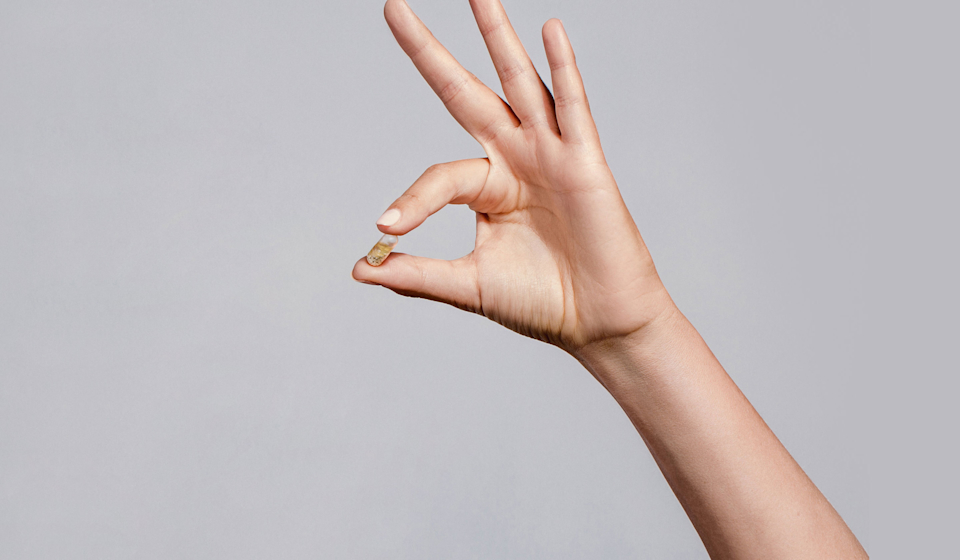It’s not summer.
Once temps go down and the days start getting shorter, you’re probably logging a lot less time in the sun. As a reminder, sun exposure is a major power-player in synthesizing vitamin D: To get specific, UVB photons from the sun team up with a compound in your skin called 7-dehydrocholesterol to form vitamin D. But when the sun is weaker, filtered out by clouds, or you're spending less time outside in general due to winter weather, that might leave you more prone to low vitamin D levels.*
You wear a lot of SPF (which is definitely a good thing).
Here's the catch: Even if you are spending a lot of time outside throughout the year, our hope is that you're slathering on lots of sunscreen to protect your skin. But since SPF filters out the UVB rays that help synthesize vitamin D, that also means that you shouldn't be relying solely on the sun to meet your levels. That means that either way, vitamin D supplementation isn't a bad idea.*
You live in an urban area, or in the northern hemisphere.
Studies point to city dwellers being particularly prone to low levels of vitamin D, thanks to pollution and other factors that filter out sunlight. And if you live in a city in a more northern part of the world… well, that’s kind of a double-whammy. Research shows that those who live closer to the equator are better able to synthesize vitamin D from sunlight throughout the year—which makes sense, since those who live further north only get a similar kind of exposure during the summer months.*
You have more melanin in your skin.
Those of us with darker skin might have a harder time synthesizing D, since melanin acts as an extra layer of defense to the sun’s rays. That means UVB photons have a tougher time penetrating the skin—which can ultimately be a factor in low vitamin D levels.*
What to do about it:
If you suspect that you need more vitamin D, you might start by considering what’s on your plate: Vitamin D-rich foods include fatty fish like salmon, mackerel, sardines and tuna, as well as egg yolks, and beef liver. But unless you’re eating a pretty sizable serving of one of these foods every single day, it’s still not a guarantee that you’re meeting your D levels through diet alone—and if you’re a vegetarian or vegan, you have fewer options where food is concerned.
With that all in mind, vitamin D supplementation is probably warranted to meet your needs. So how much vitamin D should you be aiming for? Recent research suggests that adults may benefit from 1,500 to 2,000 IU of vitamin D daily, which is why we include vitamin D3 in our multivitamins.*







